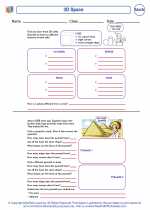Estimation
Estimation is the process of making a rough calculation or guess about the value of something. It is a useful skill in math and everyday life, as it allows us to quickly approximate quantities without needing to know the exact answer. Estimation is often used to check the reasonableness of a calculation or to get a quick sense of the size of a number.
Types of Estimation
There are two main types of estimation: rounding and front-end estimation.
Rounding
Rounding involves changing a number to a nearby value that is easier to work with. For example, rounding 37 to the nearest ten gives us 40. Rounding can be used to quickly estimate sums, differences, products, or quotients.
Front-End Estimation
Front-end estimation involves looking at the leftmost digits of a number to make an estimate. For example, to estimate 385 + 247, we can add 300 and 200 to get an estimate of 500.
Importance of Estimation
Estimation helps us to quickly assess the reasonableness of an answer and catch any glaring errors in our calculations. It is also a valuable skill in real-world situations, such as when shopping, budgeting, or making quick calculations on the go.
Overall, estimation is a practical and important skill that allows us to make quick, educated guesses about numbers and quantities.
[Estimation] Related Worksheets and Study Guides:
.◂Math Worksheets and Study Guides Third Grade. Solids and Faces
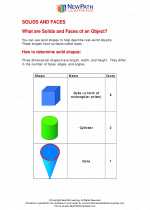
 Worksheet/Answer key
Worksheet/Answer key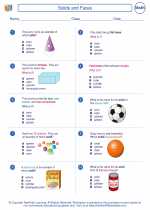
 Worksheet/Answer key
Worksheet/Answer key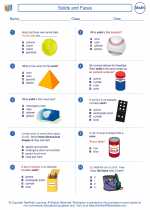
 Worksheet/Answer key
Worksheet/Answer key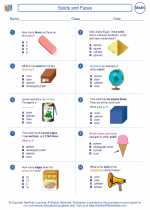
 Worksheet/Answer key
Worksheet/Answer key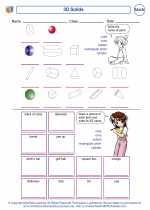
 Worksheet/Answer key
Worksheet/Answer key